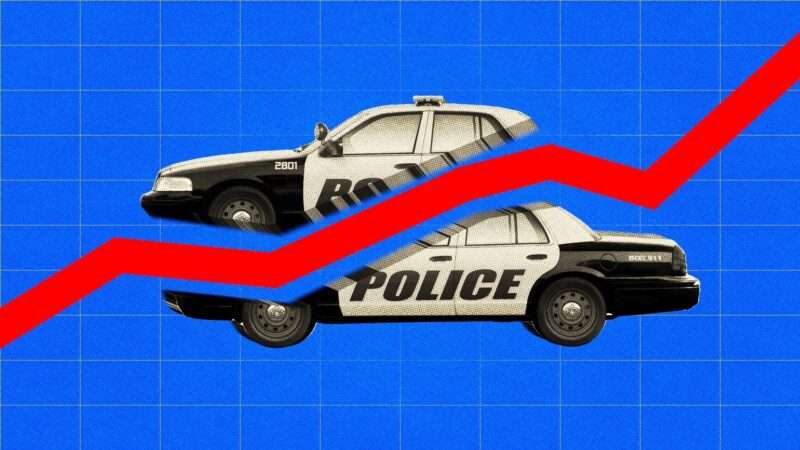
The killings of George Floyd and Breonna Taylor in 2020 touched off a summer of protests over police brutality, especially with regard to African Americans and Hispanics.
To many, the killings cemented as fact a narrative that began with the 2014 death of Michael Brown in Ferguson, Missouri, and found expression in highly charged slogans such as "all cops are bastards" and "defund the police." Reformers charge that cops, far from keeping the peace, are simply the most visible agents of white supremacy who systematically surveil and punish racial and ethnic minorities. Long-stalled reforms, such as abolishing qualified immunity and ending cash bail, made big gains as massive crowds marched under the banner of Black Lives Matter.
But what if the narrative that police are increasingly dangerous, violent, and unaccountable is wrong?
In Criminal (In)Justice, Rafael A. Mangual argues that police violence is in fact rare and declining. What's more, he says that the criminal justice reforms favored by social justice activists—and many libertarians—will make life worse for communities of color.
"If we're going to have an honest conversation about where reform needs to happen," says Mangual, "we have to be realistic about what the real scope of the problem is because that's the best way that we're going to be able to assess what can actually fix that problem."
Mangual is a senior fellow at the Manhattan Institute, the New York City think tank that played a foundational role in the shift in policing tactics that began in the early 1990s. It published the work of George L. Kelling and James Q. Wilson on broken windows policing and championed the development of the crime-tracking program CompStat under New York City Police Commissioner William Bratton.
Mangual grew up in Brooklyn and Long Island, the half-Dominican, half-Puerto Rican son of a New York Police Department detective. He attended Baruch College in the City University of New York system and holds a law degree from Chicago's DePaul University.
Reason talked with him about the facts and rhetoric surrounding law enforcement, whether violent crime is actually rising, and what the best ways are to keep the peace without harassing and locking up innocent people.
Interview by Nick Gillespie. Edited by Regan Taylor and Adam Czarnecki.
Photo Credits: Aaron Guy Leroux/Sipa USA/Newscom;
Allison Bailey / SOPA Images/Sip/Newscom; Chris, CC BY-SA 2.0, via Wikimedia Commons; Jeremy Hogan/ZUMAPRESS/Newscom; Karla Cot/ZUMAPRESS/Newscom; Marc Arcas/EFE/Newscom; Michael Nigro/Sipa USA/Newscom; Pacific Press/Sipa USA/Newscom; Ron Sachs/CNP / SplashNews/Newscom; Rod Lamkey/ZUMAPRESS/Newscom; Smallbones, CC0, via Wikimedia Commons; Stephen Zenner/ZUMA Press/Newscom; Steve Pellegrino/ZUMA Press/Newscom; TNS/Newscom; YESSICA SANCHEZ Notimex/Newscom; United Archives/Rudolph/Newscom
Music Credits: "Altered Communications, by Emanuele Errante, via Artlist; "Continuance," by Yehezkel Raz, via Artlist.
The post Is a War on Policing Increasing Crime? Q&A with Rafael Mangual appeared first on Reason.com.







